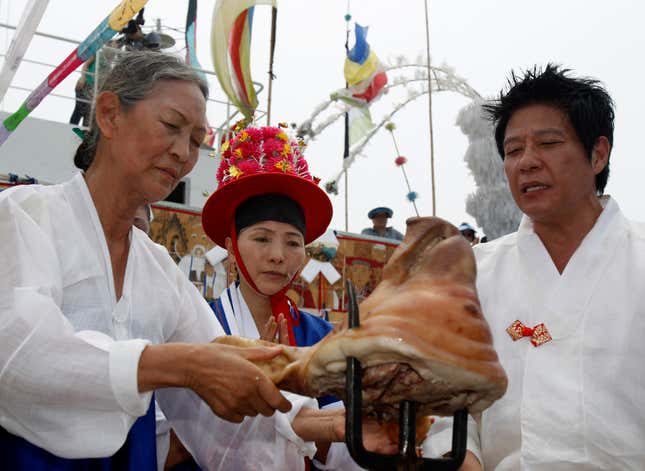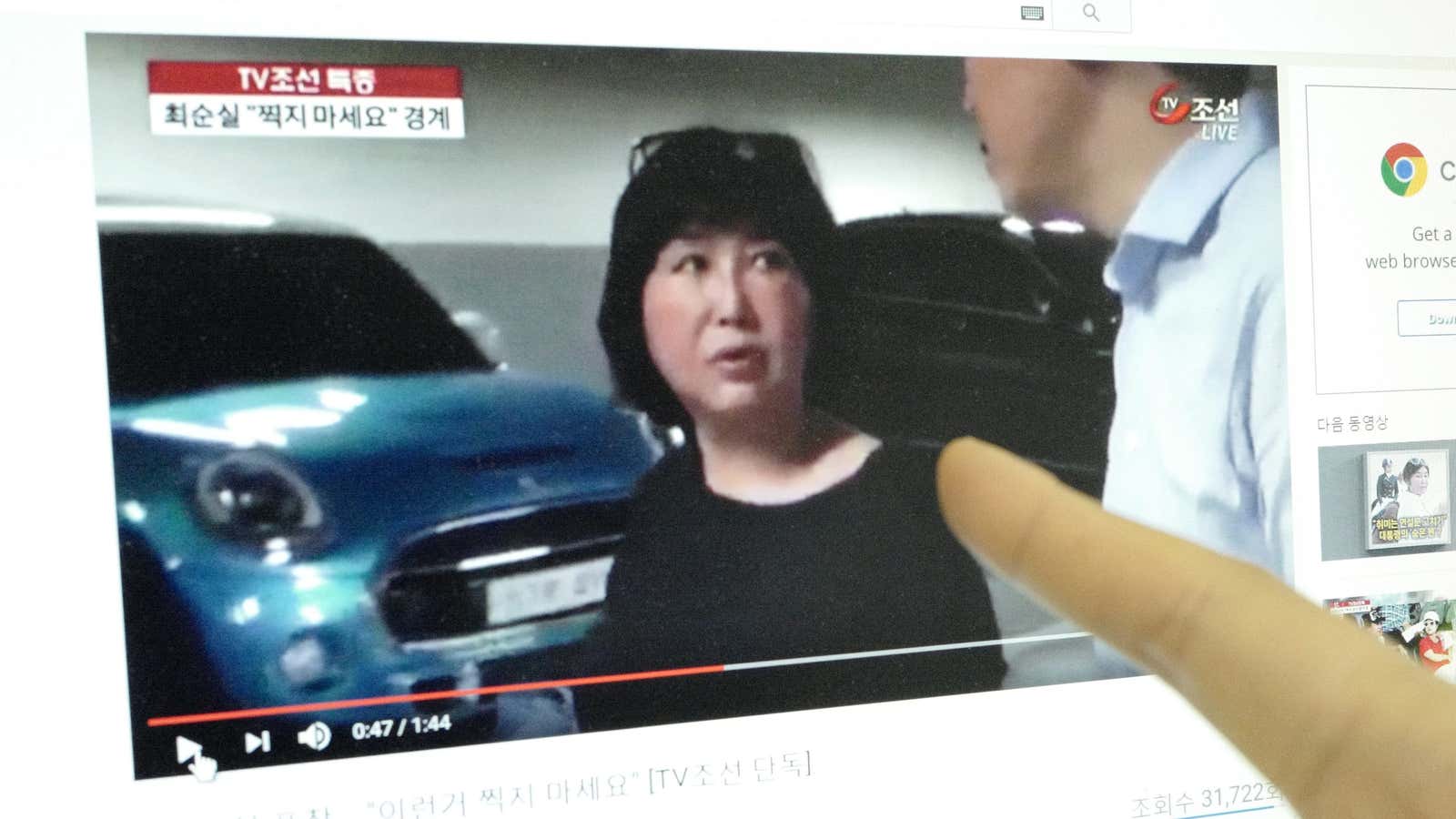The mystery that surrounds Choi Soon-sil, the close confidante of South Korean president Park Geun-hye who is at the center of a snowballing political scandal is complex and continues to unfold. At its heart, Koreans see their president as being under the spell of a “palm-reader” and even a quack.
President Park is embroiled in arguably the biggest scandal of her career, when a Korean television station reported this week that Park had been sending confidential documents to Choi after a discarded hard drive containing those files was found. Choi is also linked to two non-profit foundations (paywall) that had allegedly forced some of Korea’s biggest companies to donate millions to them. One of Korea’s top universities, Ewha Women’s University, also allegedly gave preferential treatment in accepting Choi’s daughter for a spot at the school. Amid growing calls for Park’s resignation and record low ratings, Park apologized to the Korean public on Tuesday (Oct. 24).
One opposition lawmaker described Choi’s influence over Korean politics as like living in a “scary theocracy.” Choi, while not holding any public office, has been advising Park over national and international policies and editing her speeches. She was also reportedly instrumental in the appointment of some allies to public office, thanks to the spiritual hold she has over Park. According to Korean media (link in Korean), Choi in return doled out baffling advice to Park, like to avoid wearing red or white clothes, while offering amulets and other “magical” protection. During the president’s inauguration, a nearby tree was decorated with a number of silk purses, a touch allegedly added by Choi as a symbol of prosperity and good fortune.
Park’s connection to Choi stretches back decades. She is the daughter of the fifth wife of Choi Tae-min, a policeman turned Buddhist monk turned Christian pastor who was the mentor of Park’s father, the dictator Park Chung-hee. Choi Tae-min had set up a religious group called Yongsaeng-gyo, or “Eternal Life Church,” and declared himself a Maitreya, or a “Future Buddha.” He remained a close friend of Park Chung-hee until his death by assassination in 1979. The man who shot him, Kim Jae-gyu, the head of the Korean Central Intelligence Unit, later claimed that one of his motives for the killing was Park’s inability to rid himself of Choi’s influence.
Choi Soon-sil apparently won over Park Geun-hye’s heart by claiming to be able to deliver messages from Park’s mother, Yuk Young-soo, the former First Lady, who was killed in 1974 during an assassination attempt on her husband.
Park said that Choi had helped her with speeches and campaigning in the past and that she stopped seeking help from Choi, without specifying when.

The emergence of Choi as a powerful figure in Korean politics shines a light on the continuing influence of cults and mysticism in the country. While Christianity and Buddhism are officially the two biggest religions, Choi’s religious universe is a syncretic one, mixing the two religions with many shades of magical shamanism, or Muism. The roughly 20,000 Korean shamans—a mostly female group formally acknowledged by the authorities which also has its own union, known as Kyongsing, or “belief”—are believed to be able to bridge this world and that of the spirits, a power that seems to have ensnared Park.
As the country that brought the Unification Church, or the Moonies, to the world, Park’s scandal isn’t the first time that a cult or cult-like group has been in the spotlight in Korea. In the sinking of the Sewol ferry in 2014, which killed over 300 people, mostly young students, the owner of the ferry operator was also found to be the founder of a cult called the Salvation Sect.
Choi, now the subject of a corruption probe by Korean prosecutors, is now in Germany. She gave a sole interview to Korean newspaper Segye Ilbo—owned by the Moonies.
The rapid rise in new religions, mixed with ancient folkloric beliefs and mainstream faiths, has been a constant part of post-war Korea. Now, it could end a presidency.
This article has been updated to include a link that better explains the relationship between the Salvation Sect founder and the Sewol Ferry disaster.




